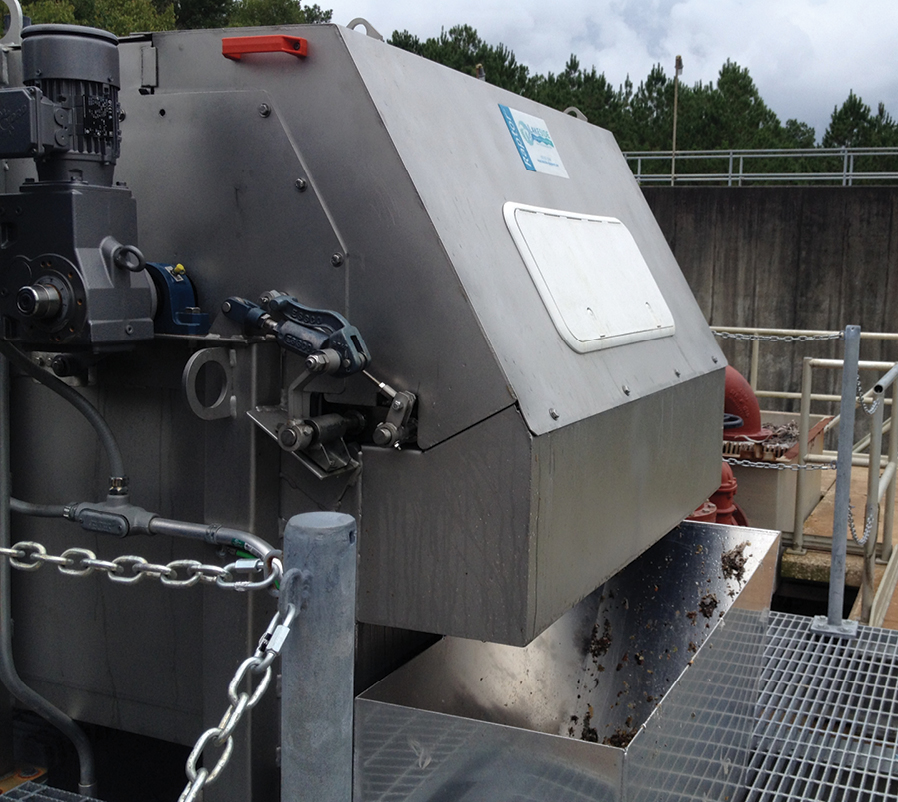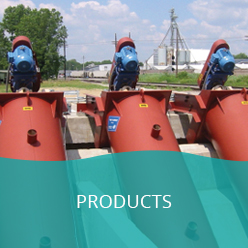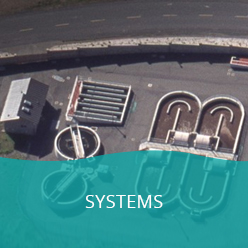Lakeside Equipment’s rotary strainer screens are used in far more than just wastewater treatment applications. One area where Lakeside Equipment’s rotary strainer screens come in very handy is the food and beverage industry. A rotary strainer screen is often thought of as being an essential part of wastewater processing. It’s even more useful in breweries, beverage/coffee plants, and food processing plants. Beyond that, this equipment helps the fuel industry. If you have a liquid that needs to have all particles filtered out before reaching consumers, rotary strainer screens are an important part of the process.
How Rotary Screens Work
Lakeside’s rotary strainer screen is a self-contained unit crafted from stainless steel, which helps prevent corrosion. If you work with an acidic liquid like coffee, wine, kombucha, or hard cider, corrosion prevention is important. It’s designed to be installed on a concrete slab or an elevated structure if you need the equipment to be off the ground. Lakeside Equipment’s engineers can help you come up with the ideal design for your business.
The liquid is pumped in through the back of the rotary strainer where it flows through a rotary screen cylinder. The wire screening removes particles ranging in size from 0.10 inches all the way down to 0.010 inches After the particles are screened, the liquid continues to pipes that travel out through the bottom.
The solid particles that are caught on the screen are then scraped from the screen cylinder using a doctor blade assembly that adjusts using the blade tensioner. The solids are discharged through the chute on the front of the machine. An internal spray bar also helps keep the doctor blade and screening clear. Controls on the machine are automated, which makes it easy for your workers to operate.
What you do next with the solids depends on your food or beverage. Brewers can send spent grains to farms where they become feed for cattle and other farm animals. You could compost the leftover solids. Some may need to go to a landfill. The filtered liquid moves on to the next stage in your business. You might be sending the liquids to a tank, bottling line, or packaging area.
How Will Your Industry Benefit From Rotary Strainer Screens?
Many industries benefit from rotary strainer screens. When you have foods, fuels, or liquids that need to be screened to remove particles or contaminants, a screening system is perfect. Here are examples of different industries where a rotary strainer screen can be extremely useful.
When making beer, water and grains steep in a process called mash conversion, which breaks down starch from the malts into sugar. The malts have to be removed for the next step. A rotary strainer screen is perfect for this step and again when removing the hops before moving the wort into fermentation tanks.
The same is true of other beverages that have to be strained before fermentation, such as hard cider, cold brew coffee that’s canned for sale, and kombucha. Kombucha that has added ginger root, chai spices, or berries can be filtered using a rotary strainer screen. Once the kombucha is filtered, it travels to the bottling line before heading to stores or farmer’s markets.
A winery can use the rotary screening to remove grape skin, flesh, and seeds from the must (liquid pressed from the grapes). That must moves into fermentation tanks where yeast is added and the grape juice ferments. After fermentation ends, wine is moved to barrels for aging. If you produce hard cider, you’ll find the screens remove hops, spices, and other additions that you use for flavoring.
Do you can the cold brew coffee or bottle the iced tea you produce? Once the cold water and coffee grounds or tea have steeped, continue the process by having a rotary strainer screen remove the grounds or tea leaves. The tea or coffee continues to a bottling or canning line, but the filtered materials can go into a compost where it becomes beneficial to gardens.
Some poultry processing plants have found rotary strainer screens to be helpful when it comes to processing. During processing, poultry is continually cleaned using scalding water. That scalder produces the water that sprays poultry during feather removal and removing the innards. The scalding water collects all kinds of debris, which can be removed using a rotary strainer screen. Because the water is kept cleaner, the poultry is cleaner when it goes through inspections and packaging. This can keep costs down as you won’t use as much water as you would having to run poultry through several cycles of cleaning.
To make sugar, sugar cane is shredded and juice is extracted. That juice has to be screened to make sure fibrous material from the sugar cane doesn’t remain in the mixture when it goes to the heaters and surge or flash tanks before moving to evaporators where the remaining crystals are dried and become the sugar people see in stores. Other aspects of a sugar plant, such as making molasses, also use the rotary strainer screen to remove pulp. If you’re in the sugar beet processing industry, the same methods are put to use. In this case, the sugar beet pulp can be used to feed animals like horses.
Fuels like oil or gas cannot have any debris. If items like small metal shavings, dirt, or grit get into the fuel, it can clog lines and cause engine damage. Water is another issue. Chemical additions can help remove water from fuel or oil. Water’s removed and the rotary strainer takes out any particles before the fuel is bottled or moved into storage tanks.
Lakeside Equipment Can Help You
Lakeside Equipment started in 1928 to help towns and cities come up with water purification measures. We’ve expanded around the world. Our equipment is designed to last while helping you process whatever liquids your industry is responsible for producing. Whether you’re a brewery owner or produce oil for the automotive industry, our screening equipment helps you get the job done right every time.
How can Lakeside’s rotary strainer screens fit into your industrial applications? It all depends on your needs. Give us a call and tell us what needs screening. We’ll help you with your options and come up with the right design and installation.








